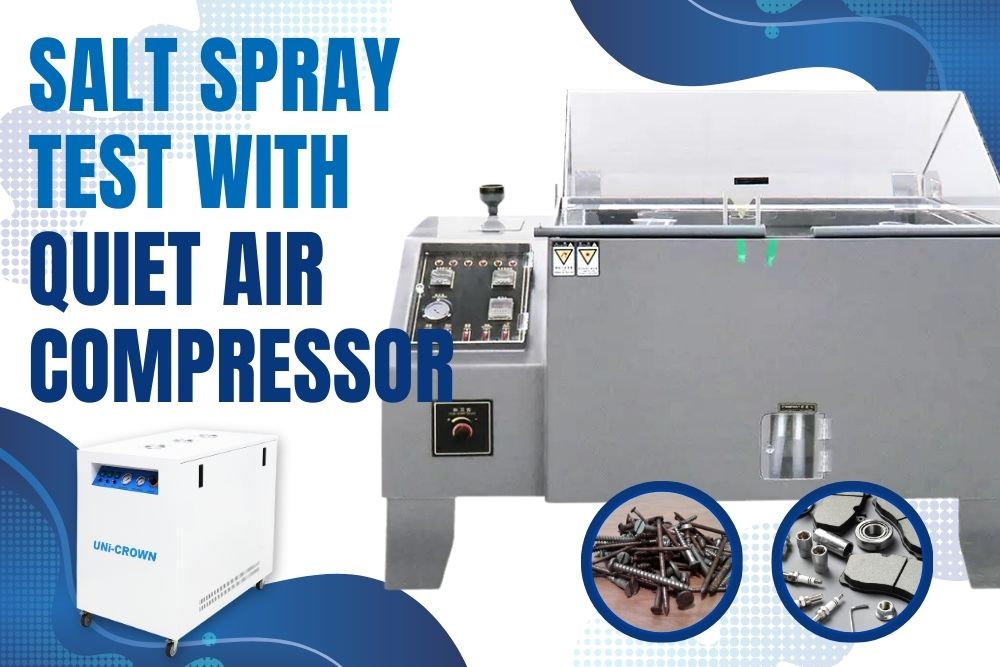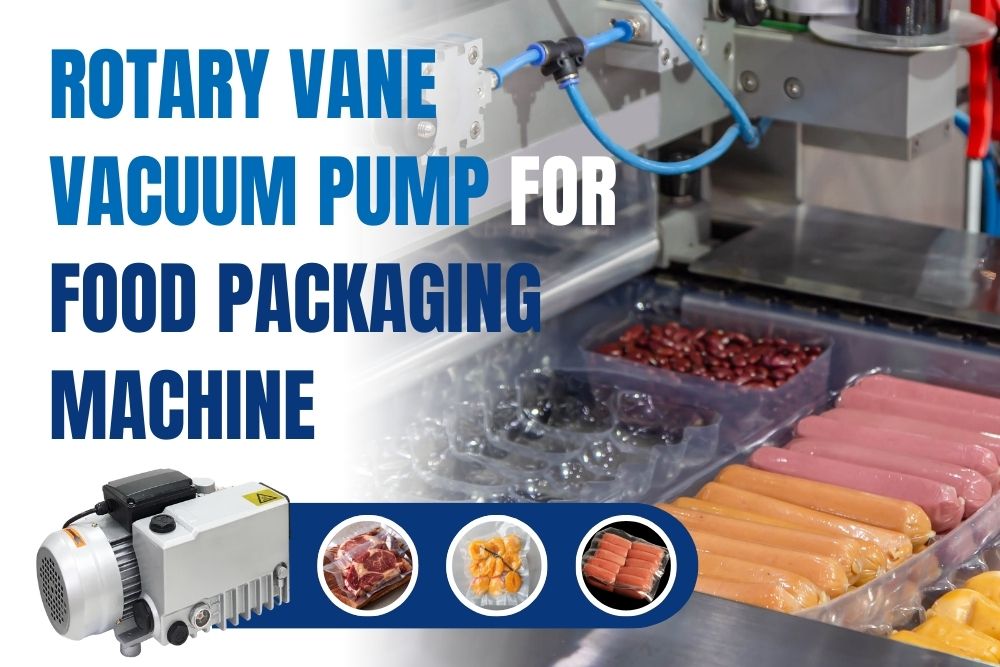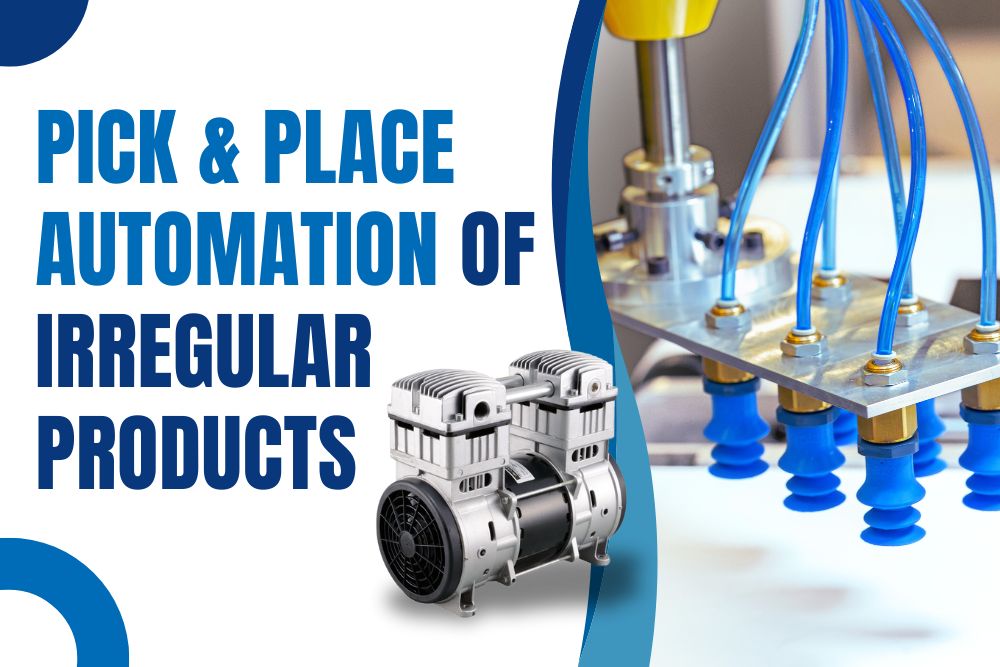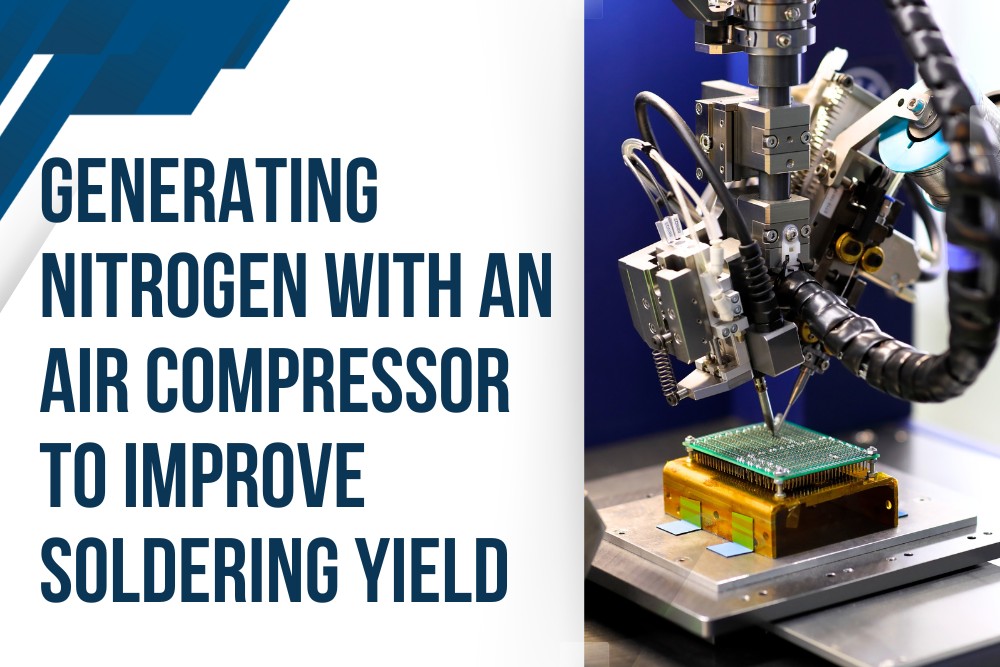In today’s product development and quality assurance processes, corrosion resistance testing has become an essential task. This is particularly critical for products exposed to harsh environments, such as automotive parts, electronic devices, and marine equipment. Understanding their corrosion resistance over time is crucial for ensuring product quality. The Salt Spray Test (SST) is an accelerated corrosion testing method that simulates the corrosion reaction of materials in a salt mist environment, providing effective results in a short period. As a professional manufacturer of oil-free quiet air compressors, we supply the Q-AIR 450D silent air compressor to customers as an air source for salt spray testing. This article will delve into the principles of the Salt Spray Test, the application of air compressors during testing, and the impact of such tests on different industries and materials.
What is the Salt Spray Test?
The Salt Spray Test (SST) is a widely used accelerated testing method for measuring the corrosion resistance of materials. This test involves spraying saltwater mist (sodium chloride solution) onto the test samples within a sealed, temperature-controlled environment. By observing changes on the product surface during the test, engineers can evaluate its corrosion resistance. The test can simulate the corrosion effects of long-term exposure to harsh environments within just a few hours, making it invaluable for product design and material selection.
Working Principle of the Salt Spray Test
Salt spray test chambers are specially designed to replicate a salt mist corrosion environment. Their working principle involves:
1. Air Supply System: The air source for salt spray test chambers is typically provided by oil-free quiet air compressors. These compressors remove moisture and oil from the air through filtration systems and deliver clean air into the test chamber. The air is humidified in a saturation tower, then mixed with saltwater to form a salt mist.
2. Spray System: The spray system, consisting of nozzles, a saltwater tank, and baffles, evenly distributes the salt mist onto the test samples. The range and intensity of the spray can be adjusted based on specific test requirements.
3. Chamber Control System: The test chamber controls parameters like temperature, humidity, and salt mist concentration according to standards such as ASTM B117 and ISO 9227, ensuring stable and accurate testing conditions.
Advantages of Using Oil-Free Quiet Air Compressors
Air compressors are critical for providing a stable air source during the Salt Spray Test. Choosing oil-free silent air compressors addresses traditional issues of oil contamination, ensuring clean air during testing. Their silent design also reduces noise pollution, enhancing the operator’s working environment.
Take our Q-AIR 450D oil-free quiet air compressor as an example. Its application in salt spray test chambers offers the following advantages:
1. Clean Air Supply: The oil-free design ensures pure, uncontaminated air, maintaining the purity and stability of the salt mist and preventing sample contamination during testing.
2. Stable Air Pressure Output: Stable air pressure is essential for accurate test results. The Q-AIR 450D provides consistent pressure to avoid uneven mist distribution or environmental fluctuations.
3. Low-Noise Operation: The low noise design reduces disruptions during long test durations, improving the work environment.
Operation of Oil-Free Quiet Air Compressors in Salt Spray Test Chambers
1. Prepare the Test Samples: Place the samples in the test chamber, ensuring they are clean and oil-free before testing.
2. Set Saltwater Concentration and Temperature: Adjust the saltwater concentration (e.g., 5% sodium chloride solution) and the chamber’s temperature (e.g., 35°C) according to test requirements.
3. Activate the Air Compressor: Start the Q-AIR 450D oil-free silent air compressor to provide compressed air through the filtration system. The air mixes with saltwater in the saturation tower, forming a mist that evenly sprays onto the sample surfaces.
4. Monitor the Testing Process: Continuously monitor the chamber’s temperature, humidity, and salt mist concentration during the test to ensure stable conditions.
5. Observe and Analyze Results: After testing, evaluate the corrosion resistance by examining white rust or red rust formation on the sample surfaces.
Applications of Salt Spray Testing Across Industries
Salt Spray Testing is extensively applied in various industries that demand long-term product reliability in harsh environments. Typical applications include:
1. Automotive Industry: Components like body panels, engine parts, and wheels often face exposure to coastal climates or urban pollution. Testing evaluates materials’ corrosion resistance and helps manufacturers select optimal materials and protective treatments.
2. Aerospace Industry: Aircraft metal parts and fuselage are subjected to high-altitude pressures, cold climates, and airborne salts. Salt spray testing ensures durability under extreme conditions, enhancing flight safety.
3. Marine Engineering: Offshore platforms, ships, and wind turbines endure prolonged exposure to salt mist. Testing helps evaluate materials’ corrosion resistance, extending equipment lifespan and reducing maintenance costs.
4. Electronics: Components like smartphones, laptops, and household appliances may corrode in humid and salty environments. Testing assesses their long-term resistance to corrosion.
5. Construction: Materials for steel structures and exterior finishes are exposed to salt mist and moisture, which can cause corrosion. Testing ensures material durability and prolongs building lifespans.
Materials Tested in Salt Spray Chambers
Salt Spray Testing is conducted on various materials to evaluate corrosion resistance, including:
1. Metals: Steel, aluminum, copper, and their alloys, as well as coated metals.
2. Plastics: ABS, PC, and PE plastics used in electronic casings and automotive parts.
3. Coatings: Anti-corrosion paints, electroplated layers, and anodized surfaces.
4. Rubbers and Fibers: Materials such as tires and industrial seals.
Three Major Salt Spray Test Methods and Their Applications
1. Neutral Salt Spray Test (NSS)
The Neutral Salt Spray Test is one of the earliest and most widely used methods. It involves adding 5% sodium chloride to purified water and heating it to create a mist within a testing chamber. The pH of the salt solution is maintained between 6.5 and 7.2, simulating coastal atmospheric conditions. It is suitable for metals, alloys, metallic coatings, organic coatings, anodized films, and conversion coatings. Intermittent spraying is more representative of marine and coastal environments than continuous spraying. In intermittent tests, corrosion products absorb moisture and influence further corrosion. If the interval between sprays is long enough, the corrosion products will dry, harden, and crack, closely resembling natural conditions. For porous coatings, short saltwater sprays are recommended to avoid creating new pores due to corrosion.
2. Acetic Acid Salt Spray Test (ASS)
Similar to the Neutral Salt Spray Test, the ASS test adds 5% sodium chloride to purified water but adjusts the solution to an acidic pH of around 3.0 using acetic acid. The pH of the solution is kept between 3.0 and 3.2. This method is designed for plated parts used in urban atmospheric conditions, such as automobiles, and is suitable for inorganic and organic coatings, ferrous and non-ferrous metals, including copper-nickel-chromium and nickel-chromium coatings, and anodized films for aluminum. Aside from the solution composition, other procedures are similar to the NSS test.
3. Copper-Accelerated Acetic Acid Salt Spray Test (CASS)
The CASS test introduces copper chloride into the acetic acid salt spray solution, creating a more aggressive testing environment. The addition of copper chloride (CuCl2·2H2O) greatly enhances the corrosiveness of the medium, mimicking severe corrosion conditions observed in reality. This accelerated method was developed after analyzing regional rainwater compositions and conducting extensive research on corrosion accelerators.
The Value and Applications of Salt Spray Testing
Salt spray testing provides critical insights for product development, material selection, quality control, and maintenance management, including:
1. Early Defect Detection: By simulating corrosion in a salt spray environment, this method identifies surface treatment or design issues early, preventing problems during actual use.
2. Performance Evaluation and Improvement: Manufacturers can quickly assess corrosion resistance and use the results to guide product design or enhancements.
3. Quality Control: As part of the production process, salt spray tests ensure consistent quality by subjecting all products to standardized testing before shipment.
4. Product Lifespan Prediction and Improvement: Understanding corrosion resistance under different conditions allows manufacturers to implement protective measures, extending product longevity.
Our Oil-Free Quiet Air Compressors for Salt Spray Testing
We offer a wide range of oil-free quiet air compressors suitable for various testing requirements. With pressures of 7–8 kg and flow rates ranging from 155 to 775 LPM, our compressors cater to both small-scale and large-scale testing. Whether you need a reliable air source for single tests or long-duration operations, the Q-AIR series ensures stable and dependable performance, enhancing the efficiency of salt spray tests.
Salt spray testing is a crucial accelerated corrosion testing method widely used across industries. Selecting a suitable oil-free quiet air compressor ensures accurate and reliable test results. If you’re looking for the ideal compressor or a replacement, our Q-AIR series meets all your requirements. Contact us now for more information and reliable support for your testing processes!




